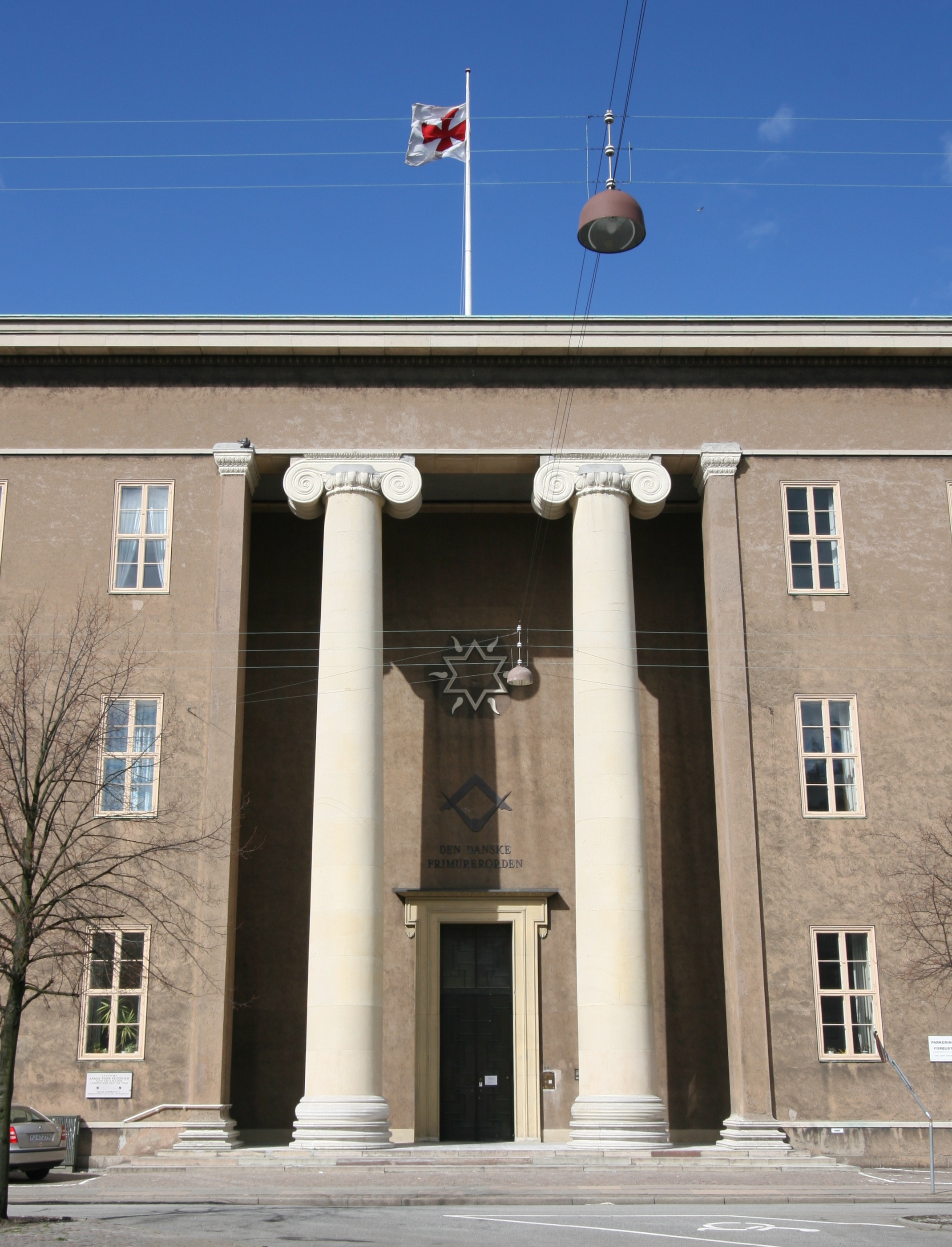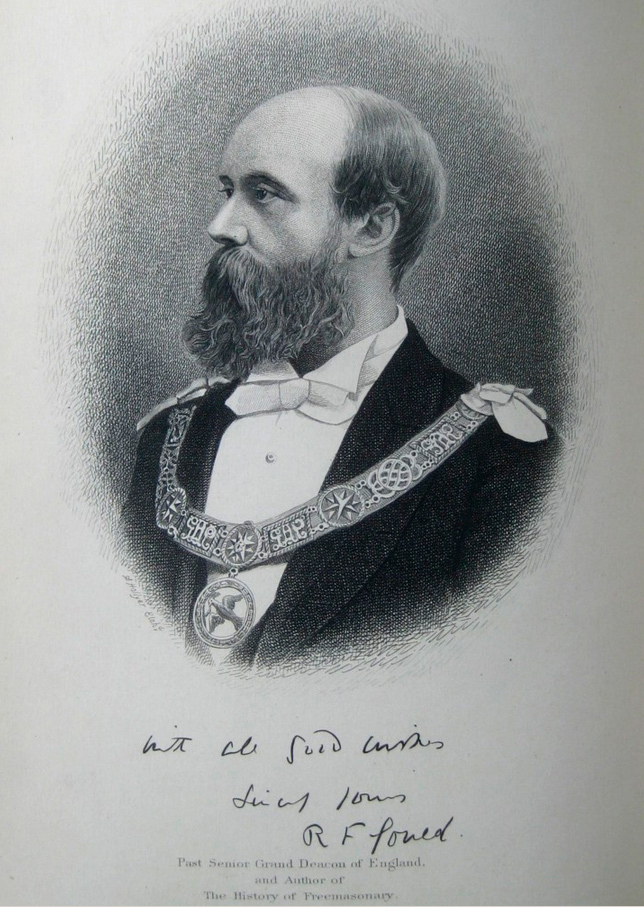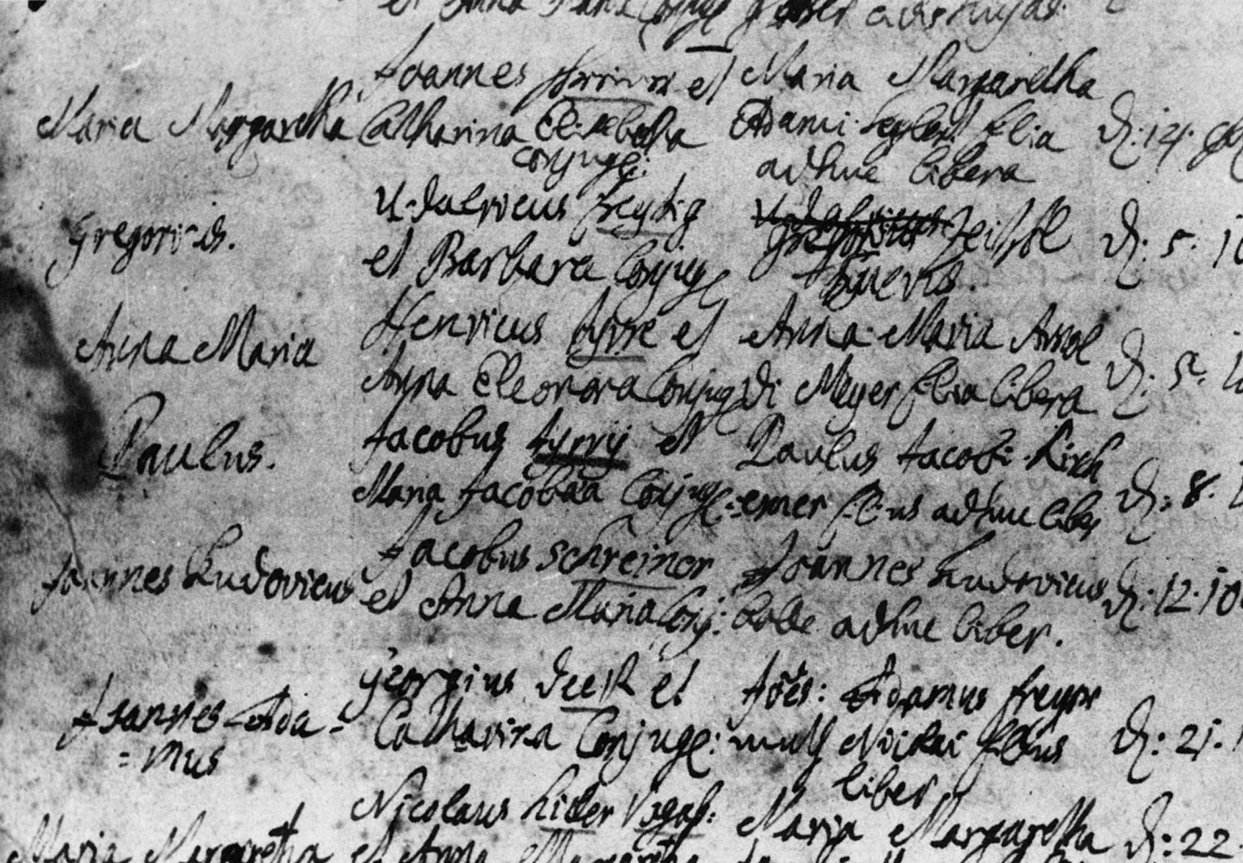|
Freemasonry In Denmark
Freemasonry in Denmark was first established in 1743 and is today represented by a number of Grand Lodges. The oldest and biggest Masonic Grand Lodge in Denmark is the Danish Order of Freemasons ( da, Den Danske Frimurerorden), in English also known as the Grand Lodge of Denmark. History Freemasonry came to Denmark in 1743 with the founding of the Lodge of ''St. Martin''. Named after Martin of Tours, the Lodge was founded in Copenhagen by several Danish Masons, who were also members of Grand Lodges abroad. 1745 saw the founding of Denmark's second Lodge, ''Zorobabel'', also in Copenhagen. From Copenhagen, Freemasonry began to spread throughout the Kingdom of Denmark-Norway with the founding in 1749 of the Lodge ''St. Olai'' in Oslo as well as Lodges in Bergen and Trondheim. In 1767 ''St. Martin'' and ''Zorobabel'' merged to form ''Zorobabel til Nordstjernen''. This Lodge took over ''St. Martins role as Mother Lodge to the Freemasons' Lodges in Norway. In 1855 ''Zorobabel til Nor ... [...More Info...] [...Related Items...] OR: [Wikipedia] [Google] [Baidu] |
Robert Freke Gould
Robert Freke Gould (10 November 1836 – 26 March 1915) was a soldier, barrister and prominent Freemasonry, Freemason and Masonic historian. He wrote a ''History of Freemasonry'' (6 vols.) (London: Thomas C. Jack, 1883–1887), which remains a standard reference work on the subject. Early life and career Gould was the son of the Rev. Robert Freke Gould, Rector of Luccombe, Somerset#Stoke Pero, Stoke Pero in Somerset and a brother of the Frederick Wentworth, 3rd Earl of Strafford, Countess of Strafford. The younger brother of Thomas Wentworth Gould, Robert Freke Gould was born in Ilfracombe in Devon and joined the British Army aged 18 in 1855 as an Ensign (rank), Ensign in the 86th (Royal County Down) Regiment of Foot, then as a lieutenant in the 31st (Huntingdonshire) Regiment of Foot. He served in Gibraltar, Malta, the Cape of Good Hope, India and China. He commanded a company during the Second Opium War of 1860 and served on the Staff of Charles Staveley, General Staveley durin ... [...More Info...] [...Related Items...] OR: [Wikipedia] [Google] [Baidu] |
Baron D'Holbach
Paul-Henri Thiry, Baron d'Holbach (; 8 December 1723 – 21 January 1789), was a French-German philosopher, encyclopedist, writer, and prominent figure in the French Enlightenment. He was born Paul Heinrich Dietrich in Edesheim, near Landau in the Rhenish Palatinate, but lived and worked mainly in Paris, where he kept a ''salon''. He helped in the dissemination of "Protestant and especially German thought", particularly in the field of the sciences, but was best known for his atheism and for his voluminous writings against religion, the most famous of them being ''The System of Nature'' (1770) and '' The Universal Morality'' (1776). Biography Sources differ regarding d'Holbach's dates of birth and death. His exact birthday is unknown, although records show that he was baptised on 8 December 1723. Some authorities incorrectly give June 1789 as the month of his death. D'Holbach's mother, Catherine Jacobina (''née'' Holbach; 1684–1743), was the daughter of Johannes Jacob ... [...More Info...] [...Related Items...] OR: [Wikipedia] [Google] [Baidu] |
Congress Of Wilhelmsbad
A congress is a formal meeting of the representatives of different countries, constituent states, organizations, trade unions, political parties, or other groups. The term originated in Late Middle English to denote an encounter (meeting of adversaries) during battle, from the Latin '' congressus''. Political congresses International relations The following congresses were formal meetings of representatives of different nations: *The Congress of Aix-la-Chapelle (1668), which ended the War of Devolution *The Congress of Aix-la-Chapelle (1748), which ended the War of the Austrian Succession *The Congress of Aix-la-Chapelle (1818) *The Congress of Berlin (1878), which settled the Eastern Question after the Russo-Turkish War (1877–1878) *The Congress of Gniezno (1000) *The Congress of Laibach (1821) *The Congress of Panama, an 1826 meeting organized by Simón Bolívar *The Congress of Paris (1856), which ended the Crimean War *The Congress of Troppau (1820) *The Congress of Tucu ... [...More Info...] [...Related Items...] OR: [Wikipedia] [Google] [Baidu] |
Karl Gotthelf Von Hund
Karl Gotthelf, Baron von Hund und Altengrotkau (11 September 1722, Unwürde - 8 November 1776, Meiningen) was a German freemason. In 1751, he founded the Rite of Strict Observance. Childhood and youth Karl Gotthelf von Hund came from Silesia, descended from Henry von Hund und Altengrotkau (ca 1480). Henry's son was Commander of the Order of Malta in Glatz, where in 1518 and 1523 he held the Office of the Governor. Documents from around 1300 show John and Christopher von Hund, but it is not proven that they belong to the line that later became Altengrotkau. Karl Gotthelf's father, Joachim Hildebrand von Hund was chamberlain and Electoral Saxon landowner. The family of von Hund and Altengrotkau owned their estate from 1607 and from 1704 the estate of Upper Kittlitz in Upper Lusatia. Karl's father died very early, so that his still minor son inherited the estate. The guardianship of the son and his mother fell to Caspar Heinrich von Rodewitz. Karl Gotthelf was the youngest of th ... [...More Info...] [...Related Items...] OR: [Wikipedia] [Google] [Baidu] |
Rite Of Strict Observance
The Rite of Strict Observance was a Rite of Freemasonry, a series of progressive degrees that were conferred by the Order of Strict Observance, a Masonic body of the 18th century. History Baron Karl Gotthelf von Hund (1722–1776) introduced a new "Scottish" Rite to Germany, which he renamed "Rectified Masonry" and, after 1764, the "Strict Observance", while referring to the English system of Freemasonry as the "Late Observance." The Rite appealed to German national pride, attracted the non-nobility, and was allegedly directed by "Unknown Superiors". The Strict Observance was particularly devoted to the reform of Masonry, with special reference to the elimination of the occult sciences which at the time were widely practiced in many lodges, and the establishment of cohesion and homogeneity in Masonry through the enforcement of strict discipline, the regulation of functions, etc. By 1768 the Rite of Strict Observance counted some forty lodges. Despite its initial popularity, ... [...More Info...] [...Related Items...] OR: [Wikipedia] [Google] [Baidu] |
Grand Master (Masonic)
A Grand Master is a title of honour as well as an office in Freemasonry, given to a freemason elected to oversee a Masonic jurisdiction, derived from the office of Grand Masters in chivalric orders. He presides over a Grand Lodge and has certain rights in the constituent Lodges that form his jurisdiction. In most, but not all cases, the Grand Master is styled "Most Worshipful Grand Master." One example of a differing title exists in the Grand Lodge of Pennsylvania, where the Grand Master is titled "Right Worshipful". Under the Grand Lodge of Scotland, the role is titled "Grand Master Mason". Deputies Just as the Worshipful Master of a Lodge annually appoints lodge officers to assist him, so the Grand Master of each Grand Lodge annually appoints Grand Lodge officers to assist him in his work. Grand Lodges often elect or appoint Deputy Grand Masters (sometimes also known as District Deputy Grand Masters) who can act on behalf of the Grand Master when he is unable to do so. In ... [...More Info...] [...Related Items...] OR: [Wikipedia] [Google] [Baidu] |
Classical Liberal
Classical liberalism is a political tradition and a branch of liberalism that advocates free market and laissez-faire economics; civil liberties under the rule of law with especial emphasis on individual autonomy, limited government, economic freedom, political freedom and freedom of speech. It gained full flowering in the early 18th century, building on ideas stemming at least as far back as the 13th century within the Iberian, Anglo-Saxon, and central European contexts and was foundational to the American Revolution and "American Project" more broadly. Notable liberal individuals whose ideas contributed to classical liberalism include John Locke,Steven M. Dworetz (1994). ''The Unvarnished Doctrine: Locke, Liberalism, and the American Revolution''. Jean-Baptiste Say, Thomas Malthus, and David Ricardo. It drew on classical economics, especially the economic ideas as espoused by Adam Smith in Book One of ''The Wealth of Nations'' and on a belief in natural law, progress, and u ... [...More Info...] [...Related Items...] OR: [Wikipedia] [Google] [Baidu] |
Absolute Monarchy
Absolute monarchy (or Absolutism as a doctrine) is a form of monarchy in which the monarch rules in their own right or power. In an absolute monarchy, the king or queen is by no means limited and has absolute power, though a limited constitution may exist in some countries. These are often hereditary monarchies. On the other hand, in constitutional monarchies, in which the authority of the head of state is also bound or restricted by the constitution, a legislature, or unwritten customs, the king or queen is not the only one to decide, and their entourage also exercises power, mainly the prime minister. Absolute monarchy in Europe declined substantially following the French Revolution and World War I, both of which led to the popularization of theories of government based on the notion of popular sovereignty. Absolute monarchies include Brunei, Eswatini, Oman, Saudi Arabia, Vatican City, and the individual emirates composing the United Arab Emirates, which itself is a fe ... [...More Info...] [...Related Items...] OR: [Wikipedia] [Google] [Baidu] |
Duchy Of Holstein
The Duchy of Holstein (german: Herzogtum Holstein, da, Hertugdømmet Holsten) was the northernmost state of the Holy Roman Empire, located in the present German state of Schleswig-Holstein. It originated when King Christian I of Denmark had his County of Holstein-Rendsburg elevated to a duchy by Emperor Frederick III in 1474. Members of the Danish House of Oldenburg ruled Holstein – jointly with the Duchy of Schleswig – for its entire existence. From 1490 to 1523 and again from 1544 to 1773 the Duchy was partitioned between various Oldenburg branches, most notably the dukes of Holstein-Glückstadt (identical with the Kings of Denmark) and Holstein-Gottorp. The Duchy ceased to exist when the Kingdom of Prussia annexed it in 1866 after the Austro-Prussian War. History The northern border of Holstein along the Eider River had already formed the northern border of the Carolingian Empire, after Emperor Charlemagne upon the Saxon Wars reached an agreement with King Hemming of ... [...More Info...] [...Related Items...] OR: [Wikipedia] [Google] [Baidu] |
Duchy Of Schleswig
The Duchy of Schleswig ( da, Hertugdømmet Slesvig; german: Herzogtum Schleswig; nds, Hartogdom Sleswig; frr, Härtochduum Slaswik) was a duchy in Southern Jutland () covering the area between about 60 km (35 miles) north and 70 km (45 mi) south of the current border between Germany and Denmark. The territory has been divided between the two countries since 1920, with Northern Schleswig in Denmark and Southern Schleswig in Germany. The region is also called Sleswick in English. Unlike Holstein and Lauenburg, Schleswig was never a part of the German Confederation. Schleswig was instead a fief of Denmark, and its inhabitants spoke Danish, German, and North Frisian. Both Danish and German National Liberals wanted Schleswig to be part of a Danish or German national state in the 19th century. A German uprising in March 1848 caused the First Schleswig War which ended in 1852. The Second Schleswig War (1864) ended with the three duchies being governed jointly by Austria ... [...More Info...] [...Related Items...] OR: [Wikipedia] [Google] [Baidu] |
Order-in-council
An Order-in-Council is a type of legislation in many countries, especially the Commonwealth realms. In the United Kingdom this legislation is formally made in the name of the monarch by and with the advice and consent of the Privy Council (''King-in-Council''), but in other countries the terminology may vary. The term should not be confused with Order of Council, which is made in the name of the Council without royal assent. Types, usage and terminology Two principal types of Order in Council exist: Orders in Council whereby the King-in-Council exercises the royal prerogative, and Orders in Council made in accordance with an Act of Parliament. In the United Kingdom, orders are formally made in the name of the monarch by the Privy Council ('' King-in-Council or Queen-in-Council''). In Canada, federal Orders in Council are made in the name of the Governor General by the King's Privy Council for Canada; provincial Orders-in-Council are of the Lieutenant-Governor-in-Council by the ... [...More Info...] [...Related Items...] OR: [Wikipedia] [Google] [Baidu] |
Gustav III Of Sweden
Gustav III (29 March 1792), also called ''Gustavus III'', was King of Sweden from 1771 until his assassination in 1792. He was the eldest son of Adolf Frederick of Sweden and Queen Louisa Ulrika of Prussia. Gustav was a vocal opponent of what he saw as the abuse of political privileges seized by the nobility since the death of King Charles XII. Seizing power from the government in a coup d'état, called the Swedish Revolution, in 1772 that ended the Age of Liberty, he initiated a campaign to restore a measure of Royal autocracy, which was completed by the Union and Security Act of 1789, which swept away most of the powers exercised by the Swedish Riksdag (parliament) during the Age of Liberty, but at the same time it opened up the government for all citizens, thereby breaking the privileges of the nobility. A bulwark of enlightened absolutism, Gustav spent considerable public funds on cultural ventures, which were controversial among his critics, as well as military attemp ... [...More Info...] [...Related Items...] OR: [Wikipedia] [Google] [Baidu] |







